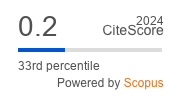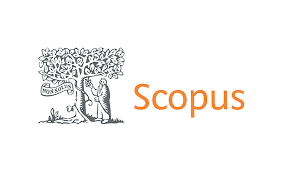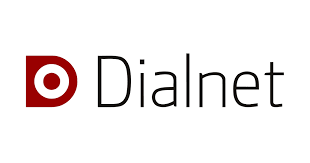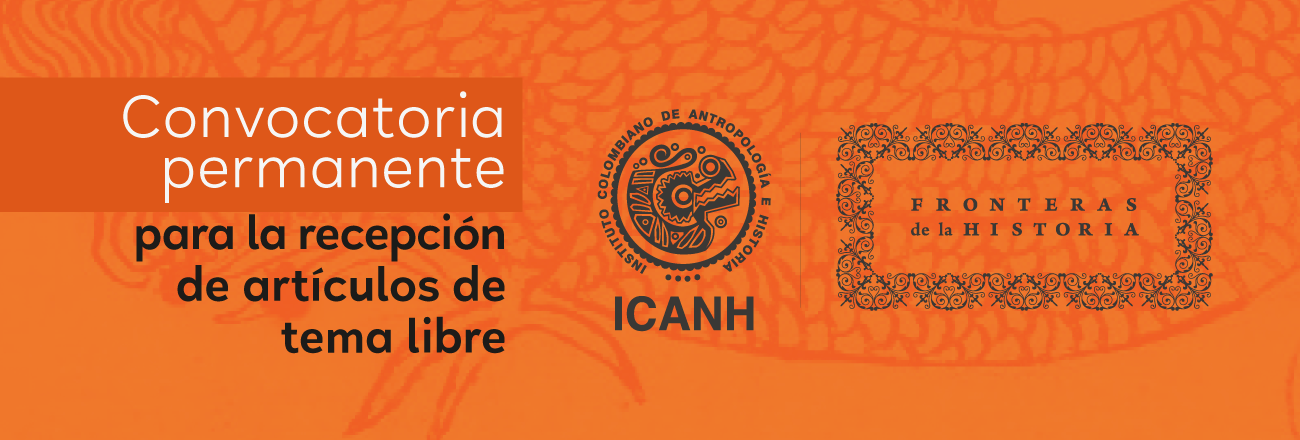Financing in the performativity regime of educational research policies
Abstract
This article falls within the framework of studies on higher education. Its purpose is to understand how the academic subjectivities that build the performativity regime are configured through the discourse of key actors in the field of education, for which a qualitative study with a poststructural approach is carried out. This research is carried out from 2017 to 2020. Sixty-two people who represent participants in the higher education research system are interviewed. The results show that the actors argue ways of sustaining, stressing, and questioning the performativity regime. The discussion points out that the regime through academic subjectivities is shaped by financing, the culture of auditing, and privileged groups. It is concluded that the field of study of education presents epistemological and methodological discussions that are not considered by this regime.
Downloads
References
Archer, L (2008): “The new neoliberal subjects? young/er academics’ constructions of professional identity”, Journal of education policy, 23(3), pp. 265–285. https://doi.org/10.1080/02680930701754047
Ball, S (2003): “The teacher’s soul and the terrors of performativity”, Journal of education policy, 18(2), pp. 215–228. https://doi.org/10.1080/0268093022000043065
Ball, S (2012): “Performativity, commodification and commitment: an i-spy guide to the neoliberal university”, British journal of educational studies, 60(1), pp. 17–28. https://doi.org/10.1080/00071005.2011.650940.
Ball, S (2016): “Subjectivity as a site of struggle: refusing neoliberalism?”, British journal of sociology of education, 37 (8), pp. 1129–1146. https://doi.org/10.1080/01425692.2015.1044072
Blackman, L. Cromby, J. Hook, D. Papadopoulos, Walkerdine, V (2008): “Creating Subjectivities”. Subjectivity, 22, pp. 1-27. doi:10.1057/sub.2008.8
Bernasconi, A., Berrios Cortés, P., Guzmán, P., , D., & Celis, S (2021): “La profesión académica en Chile: perspectivas desde una encuesta internacional”, Calidad en la Educación, (54), pp. 46-72. doi:https://doi.org/10.31619/caledu.n54.923
Butler, J. (2004): Deshacer el género, Barcelona, Paidós.
Butler, J. (2007): Género en disputa. el feminismo y la subversión de la identidad, Barcelona, Paidós.
Butler, J. (2016): El género en disputa. El feminismo y la Subversión de la Identidad, Barcelona, Paidós.
Butterwick, S; Dawson, J (2005): “Undone business: Examining the production of academic labour”, Women`s Studies International Forum, 1, (28), pp. 51-65. https://doi.org/10.1016/j.wsif.2005.02.004
Brown, D. (2017): El Pueblo sin atributos. La secreta revolución del neoliberalismo, Barcelona, malpaso.
Brunner, J. J., (2009) Tipología y características de las universidades chilenas. Documento para comentarios. Disponible en http://200.6.99.248/~bru487cl/files/2009/02/post_116.htm
Cano, M. (2021): Judith Butler. Performatividad y vulnerabilidad, Shackleton Book.
Cannizzo, F (2018): “Tactical evaluations: Everyday neoliberalism in academia Tactical evaluations: Everyday neoliberalism in academia”, Journal of Sociology, 54 (1), pp. 77-91. https://doi.org/10.1177/1440783318759094
Charteris, J. Gannon, S. Mayes, E. Nye, A & Stephenson, L. (2016): “The emotional knots of academicity: a collective biography of academic subjectivities and spaces”, Higher Education Research & Development, 35 (1), pp. 31-44, DOI: 10.1080/07294360.2015.1121209
Clegg, S (2008): “Academic identities under threat? Academic identities under threat? Femininities/masculinities and a sense self: thinking gendered academic identities and the intellectual self”, Gender and Education, 20, (3), pp. 209-221. DOI:10.1080/09540250802000389
Creswell, J. (2013): Qualitative Inquiry & Research Design: Choosing among Five Approaches (3rd ed.). Thousand Oaks, CA, SAGE.
Davies, B. & Bansel, P (2010): “Governmentality and Academic Work: Shaping the Hearts and Minds of Academic Workers”, Journal of Curriculum Theorizing, 26 (3), 5-20, pp. https://journal.jctonline.org/index.php/jct/article/view/250
Kliewe, T y Thomas, B. (2019): “Introduction: A Brief History of Engaged and Entrepreneurial Universities”, en Kliewe, T. Kesting, T. Plewa, C & Baaken, T, Developing Engaged and Entrepreneurial Universities, springer, pp. 1-19.
Fardella, C. García, J. Soto, A. Corvalán, A (2021): “Exacerbados. Identidades académicas y la transformación de la educación superior Chilena”, Quadernos de Psicología,23 (2), pp. 1-20. https://doi.org/10.5565/rev/qpsicologia.1602
Foucault, M (2016): Subjetividad y verdad. Curso en el Collège de France, México, Fondo Cultura Económica.
Gainza, C. y Ayala Munita, M (2020): “Disputas en torno a la investigación en Chile. Itinerario político de la Asociación de Investigadores en Artes y Humanidades (2016- 2019)”, Atenea, (522), pp. 207-223. https://doi.org/10.29393/At522-104DTCG20104.
Guzmán-Valenzuela, C y Martínez, M (2016): “Tensiones en la construcción de identidades académicas en una universidad chilena”. Estudios pedagógicos, 42(3), pp. 191-206. https://dx.doi.org/10.4067/S0718-07052016000400010.
Hax, A. y Ugarte, J. (2014): Hacia la gran Universidad Chilena. Santiago, Ediciones UC.
Henderson, E (2018): “Feminist Conference Time: Aiming (Not) to have been there Feeling Academic in the neoliberal University. Feminist Flights, Fights and failures. Feeling Academic in the Neoliberal University”, Studies in gender education, pp. 61-87. https://doi.org/10.1007/978-3-319-64224-6
Imilan, W. (2018): “Performance”. En Zunino, D. Giucci, G & Jirón, P. Términos claves para los estudios de movilidad en América Latina, Ediciones Biblos lexicón, pp. 147-152.
Ley Nº 20129. Diario Oficial de la República de Chile, Santiago, Chile 17 de Noviembre de 2006.
Lingard, B. (2013): “The impact of research on education policy in an era of evidence-based policy”, Critical Studies in Education, 54 (2), pp. 113-131, DOI: 10.1080/17508487.2013.781515
Lyotard, J. (1991): La condición postmoderna, Buenos aires, Cátedra.
Luczaj, K. (2022): “Foreign-Born Scholars and Academic Entrepreneurship”, Eastern Europe. J Knowl Econ, 13, pp. 1–23. https://doi.org/10.1007/s13132-020-00711-8
Montané, A. Sánchez, A. (2010): “Os profesores do ensino superior: entre a performatividade da lei e as narrativas autobiográficas”, Revista Lusófona de Educação, (15), pp. 55-69. https://www.redalyc.org/articulo.oa?id=34915599005
Morley, L (2016): “Troubling intra-actions: gender, neo-liberalism and research in the global academy”, Journal of Education Policy, 31 (1), pp. 28-45. doi/full/10.1080/02680939.2015.1062919
Muñoz-García, A (2019): “Intellectual endogamy in the university: The neoliberal regulation of academic work”, Learning and Teaching: The International Journal of Higher Education in the Social Sciences 12 (2) pp. 24-43 https://doi.org/10.3167/latiss.2019.120203
Munoz-Garcia, A. L., Lira, A (2019): “Teorización feminista y la interrupción del status quo en la construcción de conocimiento en Chile”. En A. Carrasco y L. Flores, De la Reforma a la Transformación: Capacidades, innovaciones y regulación de la educación chilena, Ediciones UC, pp. 299-322.
Muñoz-Garcia, A. L. (2020): “Reflexiones feministas para otra investigación posible” Cuadernos de Teoría Social, 12(12), pp. 14-40.https://cuadernosdeteoriasocial.udp.cl/index.php/tsocial/article/view/106
Muñoz, M. Blanco, C (2013): “Una taxonomía de las universidades chilenas”, Calidad en la educación 38, pp. 181-213. DOI: http://dx.doi.org/10.31619/caledu.n38.109
Nussbaum, M., & Gonzalez, C. (2016): “Desarrollo de la investigación en el área de la educación”. En I. Sanchez Ideas en educación: Reflexiones y propuestas desde la UC, ediciones UC, pp. 492-518.
Paredes, R. (2015): “Desafíos de la experiencia de financiamiento de la Educación Superior Chilena”, En Bernasconi, A, La Educación Superior de Chile: Transformación, Desarrollo y Crisis, Ediciones UC, pp. 219-258.
Peralta, M (2019): “Identidad académica: una franquicia en construcción”, Educar, 55, (2), pp. 543-560. https://doi.org/10.5565/rev/educar.960
Pereira, M (2016): “Struggling within and beyond the Performative University: Articulating activism and work in an academia without walls”, Women`s studies International Forum, (54) pp. 100-110. https://doi.org/10.1016/j.wsif.2015.06.008.
Pierre, E (2014): “A Brief and Personal History of Post Qualitative Research: Toward Post Inquiry”, Journal of curriculum theorizing, 30, pp.2-19. https://journal.jctonline.org/index.php/jct/article/view/521
Reyes, C. y Rosso, P (2013): “Una nueva clasificación de las universidades chilenas”, En Clasificación de Instituciones de Educación superior, 2, pp. 135-151. Santiago de Chile: Educación-ES.
Reyes, C (2016): “Medición de la calidad universitaria en Chile: la influencia de los rankings”, Calidad en la educación,(44), pp. 158-196. https://dx.doi.org/10.4067/S0718-45652016000100007
Santelices, B (2010): “El rol de las universidades en el desarrollo científico y tecnológico”. Santiago, CINDA.
Santelices B (2015): “La investigación científica universitaria en Chile” en Bernasconi A, La Educación Superior de Chile: Transformación, Desarrollo y Crisis. Ediciones UC, pp. 409-445.
Santelices, B.y Bouchon, P. (2018): Desarrollo de la Ciencia, la tecnología y la innovación. Ideas en educación II: Definiciones en tiempos de cambio, Santiago, Ediciones UC.
Pusey, A and Sealey-Huggins, L (2013): “Neoliberalism and Depoliticisation in the Academy: Understanding the ‘New Student Rebellions’”, Graduate Journal of Social Science, 10(3), pp. 80 - 99. https://core.ac.uk/display/42412931?source=2
Simbürger, E. y Neary, M (2016): “Taxi Professors: Academic Labour in Chile, a Critical-Practical Response to the Politics of Worker Identity”, Workplace, 28, pp. 48-73. https://doi.org/10.14288/workplace.v0i28.186212
Shore, C. y Wright, S (1999): “Audit culture and anthropology: neo-liberalism in British higher education”, The Journal of the Royal Anthropological Institute, 5(4), pp. 557-575. https://doi.org/10.2307/2661148
Surdez, E. Magaña, D. y Sandoval, M (2017): “Evidencias de ambigüedad de rol en profesores universitarios”, Revista electrónica de investigación educativa, 19 (1), pp. 73-83. https://doi.org/10.24320/redie.2017.19.1.889.
Véliz-Calderón, D. Theurillat, D., Paredes, B., & Pickenpack, A (2018): “The evolution of the academic profession in research universities in Chile”, Education Policy Analysis Archives, 26(17). http://dx.doi.org/10.14507/epaa.26.3262
Veliz, D. y Bernasconi, A. (2019): “Los académicos en la educación superior Chilena: Una profesión en transición”, en Carrasco, A y Flores, L , De la reforma a la transformación, Ediciones UC, pp. 323-347.
Veliz, D. y Celis, S. (2021) “The Development of Research Capabilities in Chilean Faculty”. en; Aarrevaara, T; Jones, G. Finkelstein, M. Ji. S (Eds). Universities in the Knowledge Society, Springer Press.
Weiler, H.N (2011): “Knowledge and Power, The New Politics of Higher Education”, Journal of Educational Planning and Administration, 25(3), pp. 205‐221. https://web.stanford.edu/~weiler/Texts11/JEPA_2011_reprint.pdf
Weiler, H.N. (2011): This is where academic laurels. Traducción propia.
Copyright (c) 2024 Marisol Campillay-Llanos

This work is licensed under a Creative Commons Attribution-NonCommercial-ShareAlike 4.0 International License.

Esta obra está bajo licencia internacional Creative Commons Reconocimiento-NoComercial-CompartirIgual 4.0.









_18.09_.00_1.png)


















